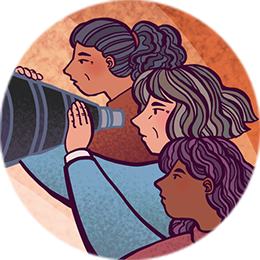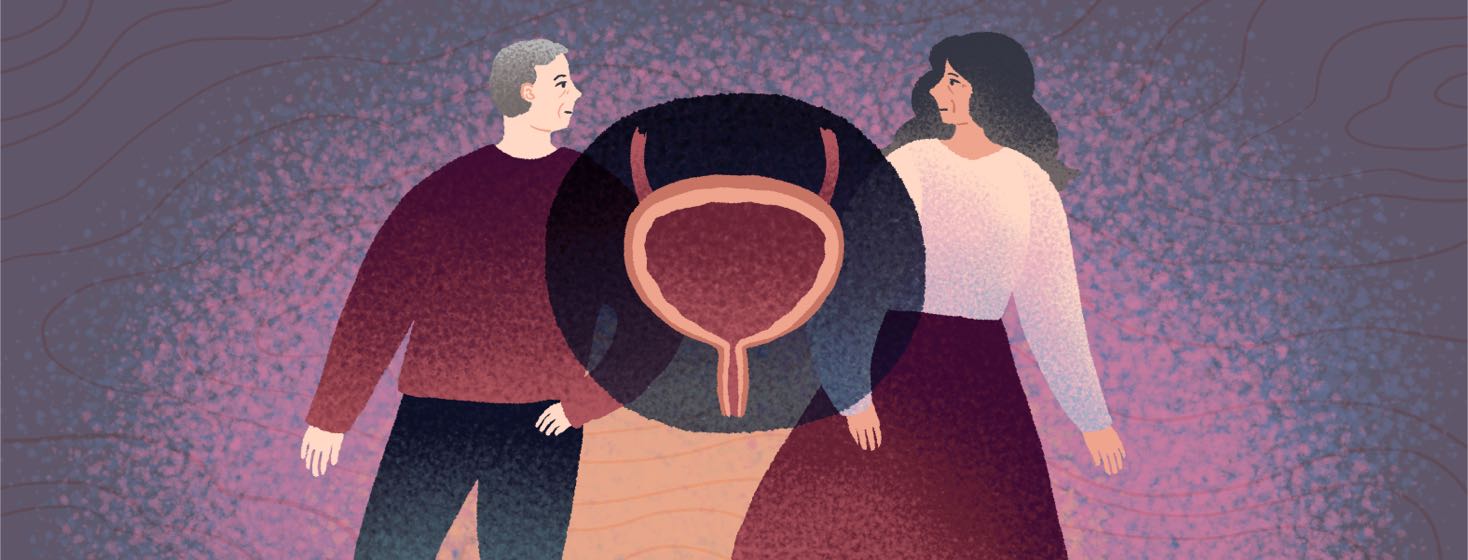Gender Differences in Bladder Cancer
Reviewed by: HU Medical Review Board | Last review date: November 2019. | Last updated: February 2023
In the United States, bladder cancer occurs much more often in men than it does in women. In fact, men are approximately four times more likely to be diagnosed with bladder cancer than women are.1,2
Bladder cancer is the fourth most common cancer among men in the United States. Among women, it is not one of the top ten most common cancers.1,2
How many men and women will be diagnosed with bladder cancer?
In 2019 in the United States, approximately 80,470 new diagnoses of bladder cancer will be made.2
In the US, approximately 1 in 89 women will be diagnosed with bladder cancer in her lifetime, compared with 1 in 27 men.3
Most people - 9 out of 10 - diagnosed with bladder cancer are over the age of 55, and the average age of diagnosis is 73.3. White individuals are more likely than both Hispanic Americans, Asian Americans, and African Americans to be diagnosed with bladder cancer.2,3
Does it have different causes in men and women?
Generally, researchers think that bladder cancer has similar causes in men and women.2
Bladder cancer develops when there is a change to the DNA in certain cells in the bladder, which causes them to grow uncontrollably and form tumors. Some people may be more likely to develop bladder cancer than others, due to genetic mutations that may be inherited.
The main controllable risk factor for cancer is smoking or any kind of tobacco use. Men and women who smoke are both at least twice as likely to get bladder cancer than people who don't smoke.4
Other risk factors can include having a family history of bladder cancer, exposure to certain chemicals, drinking well water that contains arsenic, drinking water treated with chlorine, and prolonged use of urinary catheters.4
Are there different symptoms in men and women?
Bladder cancer generally causes the same types of symptoms in men and women. These include blood in the urine, frequent or urgent need to urinate, and painful urination.2,4
Men and women who experience these symptoms should speak with their healthcare provider because bladder cancer treatment is most effective when the cancer is in its earliest stages.
Even though bladder cancer is less common among women, women with bladder cancer tend to be diagnosed later than men are.
Bladder cancer in women also tends to be more difficult to treat successfully than it is in men. Researchers are still working to understand the reasons for this. Some women may be diagnosed later because the symptoms of bladder cancer are diagnosed incorrectly as a urinary tract infection, bladder infection, menstruation, or menopausal bleeding.
Are there treatment differences between men and women?
Generally, treatments are similar for men and women who are diagnosed with bladder cancer in the lining of the bladder that has not grown into the muscles in the bladder walls, which is called nonmuscle-invasive bladder cancer.4
The initial treatment of nonmuscle-invasive bladder cancer typically involves surgery followed by chemotherapy delivered directly into the bladder.2,4
Muscle-invasive bladder cancer
However, some men and women who are diagnosed with bladder cancer that has grown into the walls of the bladder, called muscle-invasive bladder cancer, may need to have surgery to remove the bladder and create a different way to store and pass urine.
With this type of treatment, the surgeon may need to remove lymph nodes and/or some of the organs near the bladder as well.
In women, those organs might include the uterus and the ovaries. In men, it might include the prostate. Other treatments for more advanced cancers include chemotherapy, radiation, immunotherapy, and targeted therapy.
Treatment typically depends on the stage of cancer, whether there are any genetic mutations present, and whether other treatments have been effective or have stopped working.

